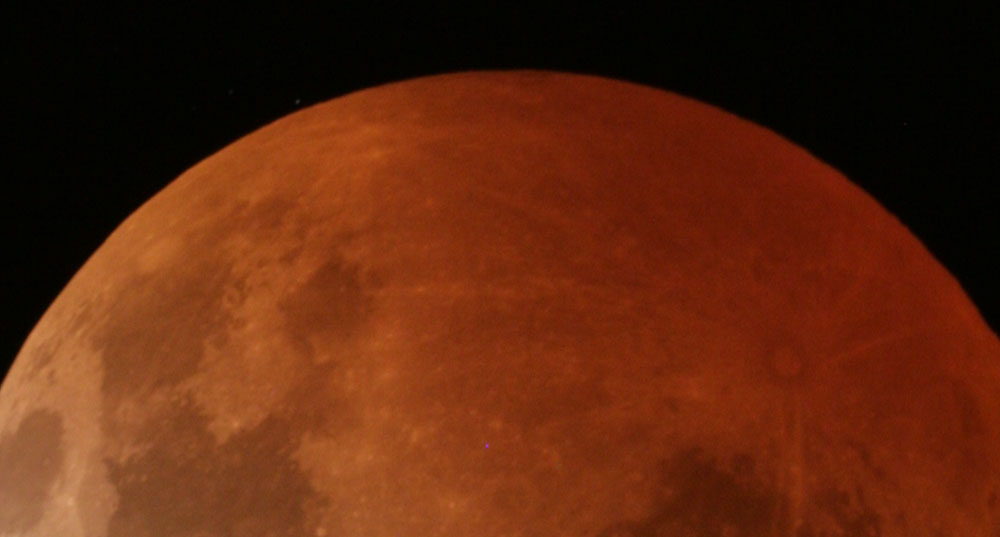Difference between revisions of "December 22, 2010"
| (2 intermediate revisions by the same user not shown) | |||
| Line 1: | Line 1: | ||
__NOTOC__ | __NOTOC__ | ||
=Solstice Red= | =Solstice Red= | ||
| + | <!-- Start of content --> | ||
<!-- ws:start:WikiTextHeadingRule:0:<h1> --> | <!-- ws:start:WikiTextHeadingRule:0:<h1> --> | ||
<!-- ws:start:WikiTextLocalImageRule:6:<img src="/file/view/LPOD-Dec22-10.jpg/189650179/LPOD-Dec22-10.jpg" alt="" title="" /> -->[[File:LPOD-Dec22-10.jpg|LPOD-Dec22-10.jpg]]<!-- ws:end:WikiTextLocalImageRule:6 --><br /> | <!-- ws:start:WikiTextLocalImageRule:6:<img src="/file/view/LPOD-Dec22-10.jpg/189650179/LPOD-Dec22-10.jpg" alt="" title="" /> -->[[File:LPOD-Dec22-10.jpg|LPOD-Dec22-10.jpg]]<!-- ws:end:WikiTextLocalImageRule:6 --><br /> | ||
| − | <em>image by [mailto:Saul.Obregon@upc.edu | + | <em>image by [mailto:Saul.Obregon@upc.edu Saúl Obregón], Santiago de Queretaro, Mexico, 20°N, 100°W</em><br /> |
<br /> | <br /> | ||
| − | Despite the opinions of many news reports, lunar eclipses are not rare. Based on data at Fred Espenak's NASA Eclipse [http://eclipse.gsfc.nasa.gov/LEcat5/LEcatalog.html | + | Despite the opinions of many news reports, lunar eclipses are not rare. Based on data at Fred Espenak's NASA Eclipse [http://eclipse.gsfc.nasa.gov/LEcat5/LEcatalog.html website], over 5000 years a lunar eclipse of some sort occurs 2.4 times each year, and a total one happens on average every 1.4 years. Lunar eclipses on any particular day presumably occur roughly every 365 eclipses, or for total eclipses (which account for just 29% of all eclipses), about every 1300 eclipses, or very roughly about every 543 years. So a total lunar eclipse on a solstice is uncommon, as is one on your birthday or any other random day. Some news stories seem to think a lunar eclipse at the time of a full Moon is special. The ignorance represented by such thinking needs to be eclipsed by the red glow of learning.<br /> |
<br /> | <br /> | ||
| − | <em>[mailto:tychocrater@yahoo.com | + | <em>[mailto:tychocrater@yahoo.com Chuck Wood]</em><br /> |
<br /> | <br /> | ||
<strong>Technical Details</strong><br /> | <strong>Technical Details</strong><br /> | ||
21/12/2010, 08:20 GMT. Cannon EOS Digital Rebel XTI on AT8"N, 1 exposure of 3.2s, ISO400.<br /> | 21/12/2010, 08:20 GMT. Cannon EOS Digital Rebel XTI on AT8"N, 1 exposure of 3.2s, ISO400.<br /> | ||
<br /> | <br /> | ||
| + | <p><b>Yesterday's LPOD:</b> [[December 21, 2010|Lunar Field Atlas]] </p> | ||
| + | <p><b>Tomorrow's LPOD:</b> [[December 23, 2010|Loss of Light]] </p> | ||
<hr /> | <hr /> | ||
| + | {{wiki/ArticleFooter}} | ||
Latest revision as of 13:24, 8 February 2015
Solstice Red

image by Saúl Obregón, Santiago de Queretaro, Mexico, 20°N, 100°W
Despite the opinions of many news reports, lunar eclipses are not rare. Based on data at Fred Espenak's NASA Eclipse website, over 5000 years a lunar eclipse of some sort occurs 2.4 times each year, and a total one happens on average every 1.4 years. Lunar eclipses on any particular day presumably occur roughly every 365 eclipses, or for total eclipses (which account for just 29% of all eclipses), about every 1300 eclipses, or very roughly about every 543 years. So a total lunar eclipse on a solstice is uncommon, as is one on your birthday or any other random day. Some news stories seem to think a lunar eclipse at the time of a full Moon is special. The ignorance represented by such thinking needs to be eclipsed by the red glow of learning.
Chuck Wood
Technical Details
21/12/2010, 08:20 GMT. Cannon EOS Digital Rebel XTI on AT8"N, 1 exposure of 3.2s, ISO400.
Yesterday's LPOD: Lunar Field Atlas
Tomorrow's LPOD: Loss of Light
COMMENTS?
Register, Log in, and join in the comments.



